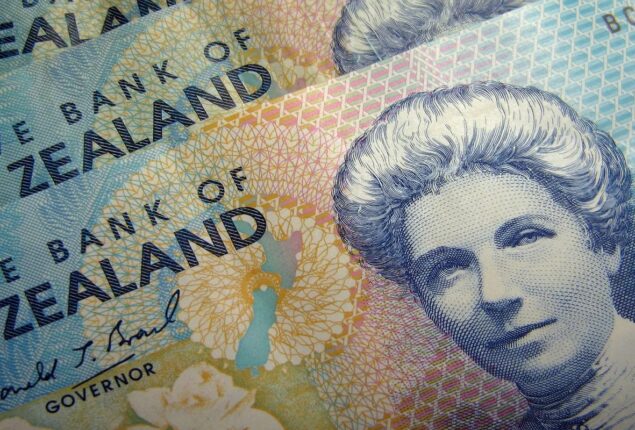Tri-Series: Pakistan reaches New Zealand for upcoming tri-series
Pakistan team arrive in New Zealand for tri-series with Bangladesh, New Zealand....

Central bank of New Zealand increases interest rates to a 7-year high
As it tries to control soaring inflation in an overheated economy, New Zealand’s central bank raised interest rates to a seven-year high and warned that there would be more suffering to come.
The official cash rate, which determines the cost of mortgages and other borrowings, was increased by the Reserve Bank of New Zealand’s (RBNZ) policy committee by 0.5 percentage points to 3.5 percent on Wednesday. This was the fifth such significant move and the eighth increase in the previous 12 months.
Given the severe pricing pressures in the economy, the committee even discussed raising rates by 0.75 percentage points before settling on a move of half a percentage point.
According to RBNZ Governor Adrian Orr, “The Committee decided it remains prudent to continue tightening monetary conditions at pace to maintain price stability and support the creation of the most durable employment possible.”
The unemployment rate is too high and core consumer price inflation is too high.
The Reserve Bank of Australia’s dovish shift to a quarter-point raise at its policy meeting on Tuesday contrasted with the hawkish rhetoric.
The kiwi dollar increased 0.9 percent in response to investor activity, reaching $0.5782, while two-year swap rates increased 6 basis points to 4.51 percent. The biggest daily drop in rates since 2001 occurred on Tuesday when rates dropped 0.25 percent.
The likelihood that the RBNZ would increase interest rates by another 0.5 percentage points at its next meeting in November, with rates topping at 4.5 percent by May, was better than 60%, according to the markets.
Jarrod Kerr, the chief economist at Kiwibank, said, “The announcement was punchy and hawkish, and emphasized the need to demand-destruct inflation back to target.
For obligations to be met, he continued, “further rate increases are necessary.” “We continue to project a 4.0 percent peak for this cycle. Despite the fact that the likelihood of further policy tightening to 4.5 percent is definitely increased.
In the following months, household spending will be severely impacted by the fact that mortgage payments had not yet caught up to the cash rate, according to Kerr.
The RBNZ meeting minutes revealed that the committee was aware of delays in the transmission of monetary policy and a slow pass-through to retail interest rates, which argued against a 0.75 percentage point increase.
While unemployment was close to historic lows at 3.3 percent, inflation was already at a 30-year high of 7.3 percent in the second quarter and is expected to grow even more.
The 5 million-person island nation is in dire need of employees, and after a protracted pandemic shutdown, migrant patterns are still recovering.
According to a significant assessment of business conditions released this week, firms are pessimistic about the future, with capacity issues being their top concern.
74% of respondents noted rising costs, while 43% identified labor shortages as their top business challenge.
According to Miles Workman, a senior economist at ANZ, “the signals on capacity and inflation pressures are most relevant for the RBNZ right now.” Core inflation cannot be brought back to a reasonable level in a timely manner with the slow-moving removal of capacity limitations alone.
Catch all the World News, Breaking News Event and Latest News Updates on The BOL News
Download The BOL News App to get the Daily News Update & Follow us on Google News.